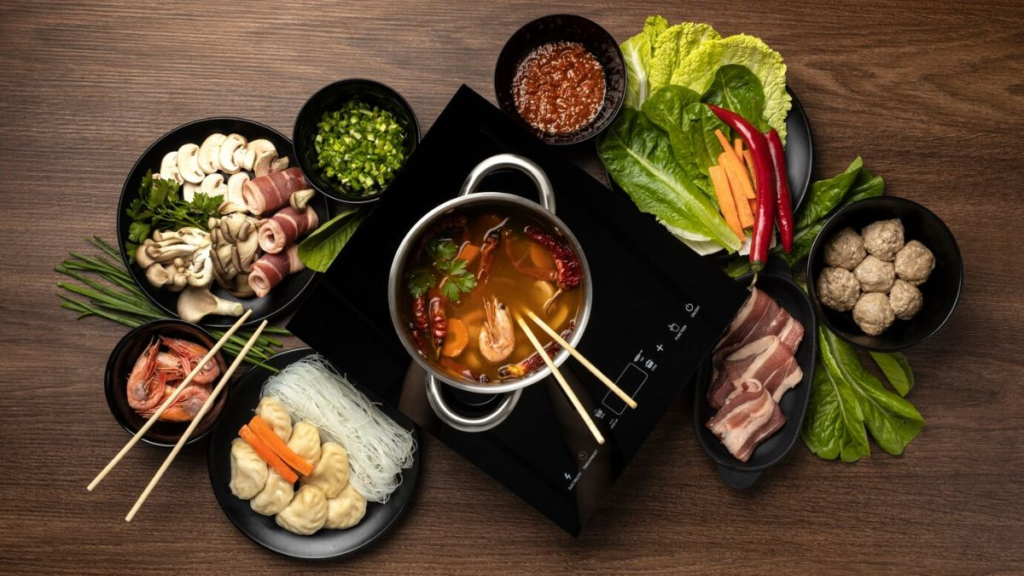A recent investigation in Sichuan, China, has exposed a shocking food safety scandal involving a hotpot restaurant recycling “saliva oil.”
This practice, which involves reusing leftover chili oil from diners’ soup bases, has sparked widespread outrage and concern over food hygiene. Authorities have seized substantial quantities of recycled beef tallow, emphasizing the risks posed by such practices.
The Shocking Discovery of Saliva Oil
The scandal unfolded in Nanchong, Sichuan, when local authorities discovered that a hotpot restaurant had been secretly reusing chili oil left by previous customers.
This “saliva oil” was mixed with fresh oil to create soup bases for subsequent patrons. The Nanchong Market Regulation Administration reported the seizure of 11.54 kilograms of recycled beef tallow, a vital ingredient in Sichuan and Chongqing-style hotpots.
The practice violated China’s Food Safety Law, implemented in 2009, which explicitly bans the reuse of leftover food ingredients.
Following the discovery, the case was handed over to the local police for further investigation. This revelation has shocked diners and highlighted the darker side of the food industry, where cost-cutting measures can compromise public health.
Read : Barcelona’s Disfrutar Has Officially Been Crowned the 2024 Best Restaurant in the World
The restaurant owner admitted to recycling the chili oil since September 2024, claiming that it enhanced the flavor of the soup and improved business performance. While the practice may have been financially beneficial, it raised serious concerns about hygiene and the potential spread of infectious diseases.
A Widespread and Controversial Practice
While the discovery in Sichuan has sparked outrage, it has also brought to light a long-standing practice in certain hotpot restaurants. Social media users from mainland China have revealed that mixing old oil with fresh oil has been an “open secret” for years.
According to some users, this practice is often justified by claims of better flavor. “Hotpot without old oil just isn’t as tasty,” commented a diner from Chongqing. Another user from Sichuan remarked that packaged hotpot soup bases fail to replicate the rich flavors found in restaurants, attributing the difference to the use of recycled oil.

Despite the perceived enhancement of flavor, many are deeply concerned about the health risks associated with this practice. Recycled oil, particularly when extracted from leftover food, poses a significant risk of spreading infectious diseases and other health issues. One social media user labeled the practice unsafe, emphasizing the dangers of contracting illnesses from such materials.
This revelation has not only tarnished the reputation of hotpot restaurants in the region but also raised questions about food safety standards across China. While hotpot is a beloved culinary tradition, the exposure of such practices threatens to undermine consumer trust in this iconic dish.
Strengthening Food Safety and Consumer Trust
The Sichuan hotpot scandal has reignited discussions about food safety and the need for stricter enforcement of regulations. China’s Food Safety Law prohibits the reuse of leftover food ingredients, but the incident in Nanchong highlights the challenges of ensuring compliance.
Authorities in Sichuan have taken decisive action by shutting down the restaurant and seizing the recycled oil, but this may be only the tip of the iceberg. The widespread acknowledgment of similar practices suggests that more extensive investigations and reforms are needed to restore consumer confidence.
One critical step is increasing transparency in the food industry. Restaurants must adhere to strict hygiene standards, and regulators must conduct regular inspections to detect and prevent violations.
Public awareness campaigns can also play a role in educating consumers about food safety and encouraging them to report suspicious practices.

Moreover, the industry must prioritize ethical business practices over short-term profits. While reusing oil may reduce costs, the potential harm to public health and long-term damage to reputation outweighs any financial benefits. Restaurants that prioritize quality and safety can set themselves apart and build a loyal customer base.
The hotpot scandal also underscores the importance of empowering consumers to make informed choices. By understanding the risks associated with certain practices, diners can demand higher standards and hold businesses accountable.
Social media platforms have proven to be a powerful tool for exposing unethical practices, and their role in shaping public opinion cannot be underestimated.
The incident in Sichuan serves as a stark reminder of the need for vigilance in maintaining food safety standards. It highlights the importance of proactive measures to protect public health and uphold the integrity of cherished culinary traditions.
By addressing these challenges head-on, China can ensure that hotpot remains a source of pride and enjoyment for generations to come.

